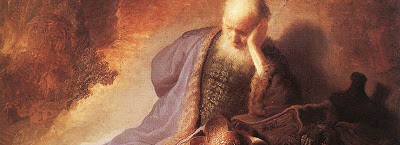TO CHEW ON: "Therefore I exhort first of all that supplications, prayers, intercessions, and giving of thanks be made for all men, for kings and all who are in authority, that we may lead a quiet and peaceable life in all godliness and reverence." 1 Timothy 2:1-2
The instructions to pray for rulers and authorities must have been especially difficult for members of the early church. Their rulers were often cruel and repressive with no qualms about giving Christians a bad time. Followers of "The Way" were frequently scapegoats, accused of and then killed for crimes they had never committed.
In spite of this, Paul tells Timothy to instruct the people in his congregation to intercede and give thanks for all in leadership and authority positions. Still today, whether we like them or not, agree or disagree with their politics and decisions, we are to pray for those who rule and have authority — in our land and all over the world.
Dick Eastman in his book Love On Its Knees
"He has shown you, O man, what is good; and what does the Lord require of you but to do justly, to love mercy, and to walk humbly with your God?"
From this Eastman suggests:
"- We must pray that a particular leader will do justly....that he or she will govern truthfully with a spirit of sincerity.
- We may pray that a leader will love mercy. This means he or she will govern compassionately with a spirit of generosity.
- We may pray that the leader will walk humbly with God. This means he or she will govern modestly and with a spirit of sensitivity."
Eastman then goes on to list seven specific things we can pray for leaders of our country and countries around the world:
1. That unjust leaders will make mistakes that help advance the Gospel of Jesus Christ (Psalm 109:26-29).
2. That tyrannical leaders will fall from power by receiving unsound advice (Psalm 5:10).
3. That godly leaders will discover spiritual wisdom to govern their nations (Proverbs 28:2).
4. That all leaders will receive a personal message of God's love (Isaiah 52:7).
5. That leaders in troubled nations will grow weary of continuing bloodshed in their lands (1 Kings 5:3-4).
6. That corrupt leaders will recognize their evil ways and turn to God (2 Chronicles 33:11-13).
7. That all leaders will realize that God alone gave them their positions of authority (Daniel 2:20-21) — Dick Eastman (Dick Eastman On Prayer: Love On Its Knees
Let's spend some time praying for those in authority today.
PRAYER: Dear God, I confess I have often neglected to pray for the leaders of my land, province and city. Today I pray for my Prime Minister (or president or king...), the premier of my province (or governor of my state...), and the mayor of my city. May they be blessed with Your wisdom, have a personal sense of Your love, and acknowledge Your role in bringing them to their position and helping them carry out their responsibilities. Amen.
PSALM TO PRAY: Psalm 19
The Bible Project VIDEO: 1 Timothy (Read Scripture Series)
MORE: More authorities to pray for...
Elected, appointed, or self-appointed political rulers are not society's only authorities. Many other people have such positions, not formally recognized perhaps but by reason of their influence. Other authority figures for which we can and should pray could be:
1. Judges and members of law enforcement, including the police and the military.
2. Educators which would include teachers, college and university professors, even our kids' sports coaches.
3. Cultural authorities such as entertainers and sports figures.
4. Commercial authorities such as business leaders, and members of the media.
Perhaps you can think of even more...
**************
Unless otherwise noted all Scripture quotations are taken from the New King James Version®. Copyright © 1982 by Thomas Nelson, Inc. Used by permission. All rights reserved.










